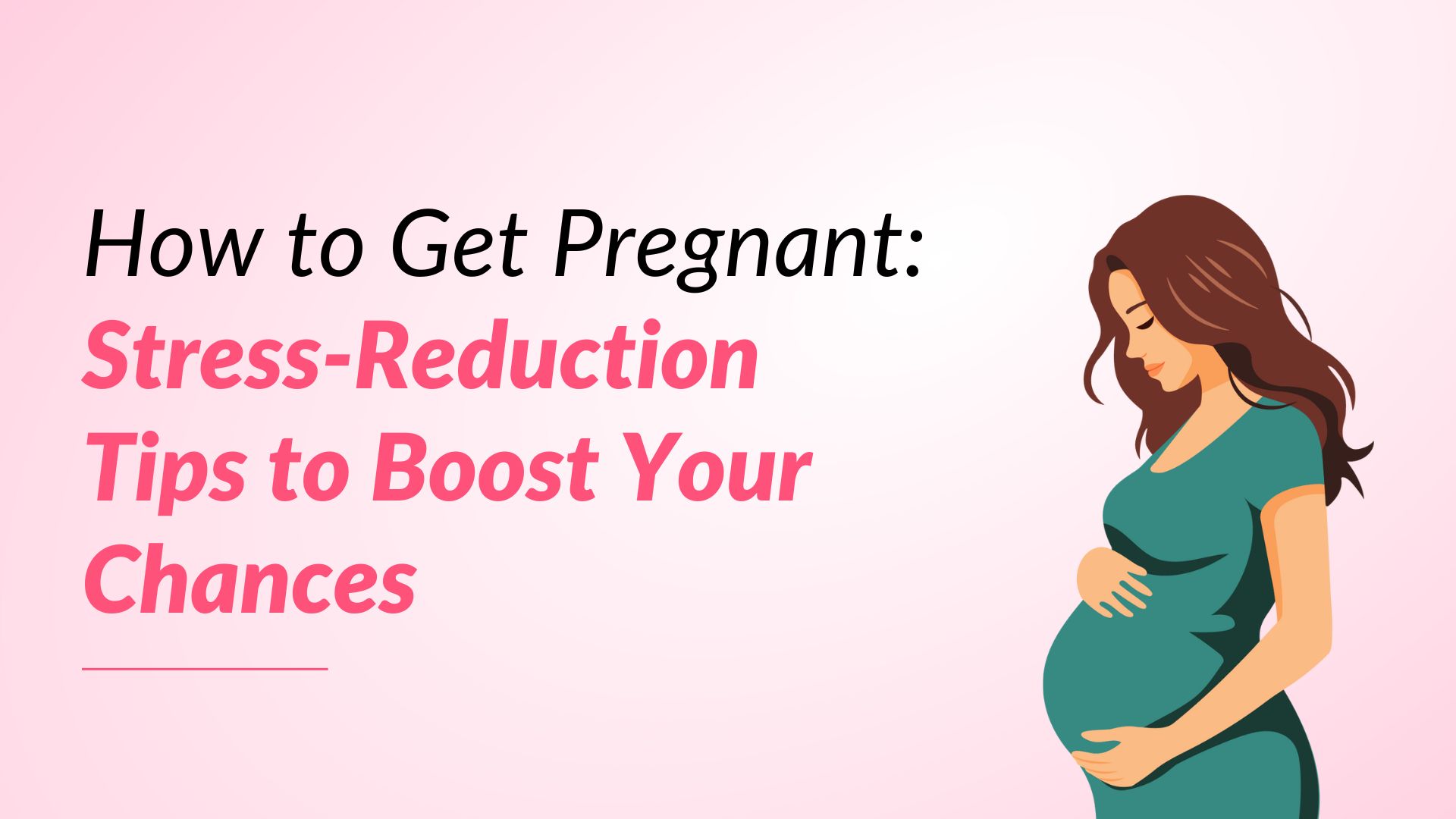How to Get Pregnant: Stress-Reduction Tips to Boost
Reviewed By: Dr. Vijaya Madhuri, fertility specialist at Ferty9 Fertility Center, Banjara Hills Hyderabad
Are you trying to get pregnant but finding it challenging despite your best efforts? This struggle is more common than you might think. Around 15-20 million couples in India face infertility issues, with stress being a major contributing factor. While you may feel alone, rest assured that solutions are available to support you.
Stress, often underestimated, can significantly impact your fertility journey. But there’s good news—managing stress effectively can boost your chances of conception. In this blog, we’ll discuss how stress affects your body, practical stress-reduction techniques, and lifestyle changes to improve your fertility. Let’s explore the best tips to get pregnant while minimizing stress.
How Does Stress Affect the Body When Trying to Conceive?
Stress isn’t just a mental experience; it has profound physical effects, especially when you’re trying to conceive. Chronic stress can disrupt your hormonal balance, affecting sperm production in men and ovulation in women. Elevated cortisol levels, a hallmark of stress, interfere with the reproductive hormones required for a healthy way to conceive.
Moreover, stress can result in unhealthy lifestyle choices such as poor diet, lack of exercise, and sleep deprivation, which further reduce fertility. This creates a vicious cycle where stress when trying to get pregnant lowers your chances, which in turn increases anxiety. In fact, studies show that 25% to 60% of individuals facing infertility experience symptoms of anxiety and depression, which are significantly higher than those in people who can conceive easily. Recognizing this connection is the first step to addressing it.
Related read: The Impact of Stress on Men’s and Women’s Sexual Health
Proven Stress-Reduction Techniques to Enhance Fertility
If you’re unable to get pregnant, it’s time to focus on reducing stress. These practical methods are backed by science and can help create the right conditions for conception.
Mindfulness and Meditation
Mindfulness practices, like meditation and deep breathing exercises, can help calm your mind and reduce anxiety. Studies show that consistent meditation lowers cortisol levels, improving overall reproductive health. Even 10 minutes a day can make a difference.
Yoga for Fertility
Yoga combines physical exercise with mental relaxation, making it ideal when you’re trying to get pregnant. Certain poses, like child’s pose or reclining bound angle pose, are specifically beneficial for reproductive health.
Acupuncture
Acupuncture is known to promote relaxation and improve blood flow to the reproductive organs. Many couples trying to conceive have reported positive results with regular sessions.
Journaling
Writing down your thoughts and emotions can help you to reduce feelings of frustration or depression when trying to conceive. This technique fosters emotional resilience, thus reducing stress.
Fertility Counseling
Seeking professional support can provide clarity and reduce emotional strain. Fertility counselors are experienced in addressing concerns specific to couples unable to conceive.
Related read: How Ferty9's Fertility Counseling Services Address Your Specific Needs?
Lifestyle Changes to Lower Stress and Improve Fertility
Your daily habits play an important role in managing stress and improving fertility. When trying to conceive, making small but consistent changes can make a big difference.
Healthy Diet
A balanced diet high in antioxidants, minerals, and vitamins promotes reproductive health. Include foods like leafy vegetables, nuts, seeds, and lean proteins. Avoid processed foods and excessive caffeine, as they can increase stress levels.
Regular Exercise
Exercise releases endorphins, the body’s natural stress-relievers. Activities like walking, swimming, or cycling are effective ways to stay active without overexerting yourself.
Adequate Sleep
Sleep is vital for hormonal balance. Poor sleep quality can worsen stress and affect ovulation or sperm production. Aim for 7-9 hours of uninterrupted sleep each night to support overall health and fertility.
Limit Screen Time
Spending too much time on screens, especially during the night, can disturb your sleep and increase stress. Consider a "digital detox" for an hour before bedtime to create a relaxing environment and improve sleep quality.
Cut Down on Alcohol and Tobacco
Both alcohol and tobacco negatively impact fertility and increase stress. Reducing or eliminating these habits will benefit your mental and physical health, enhancing your chances of getting pregnant.
Creating a Positive Environment for Conception
A supportive environment can help to reduce stress when trying to conceive and make the process less overwhelming.
Open Communication with Your Partner
Maintaining open communication with your partner can alleviate stress and foster emotional support, which is important during the journey of understanding how to get pregnant and improving overall well-being.
Build a Support System
Surround yourself with people who understand your journey. This could include close friends, family, or support groups for couples unable to conceive.
Schedule Time for Fun
Engaging in enjoyable activities together can shift your focus away from stress and create happy memories. Laughter and relaxation can have a surprisingly positive impact on fertility.
Environmental Factors
Create a calming home environment with soft lighting, relaxing music, and a tidy living space to reduce stress.
Work-Life Balance
Maintaining a good and healthy work-life balance helps reduce stress and provides more quality time for relaxation and connection with your partner.
Avoid Comparison
Every fertility journey is unique. Avoid comparing your situation to others, especially through social media, as it can trigger unnecessary anxiety.
Set Realistic Expectations
It’s important to remember that conception often takes time. Patience and a positive mindset can alleviate the stress of wanting to conceive.
Find Hope and Solutions for Female Infertility and Male Infertility — Explore Our Comprehensive Services
IVF Treatment
IUI Treatment
ICSI Treatment
PICSI Treatment
Fertility Preservation Service
Blastocyst Culture & Transfer Treatment
Genetic Screening & Testing
Conclusion
Stress is a natural response when you’re trying to conceive, but it doesn’t have to hinder your chances of parenthood. By adopting stress-reduction techniques, making lifestyle adjustments, and fostering a supportive environment, you can significantly improve your fertility journey.
If you're wondering “how to increase your chances of getting pregnant”, consult the experts at Ferty9 Fertility Center. With advanced care and a compassionate team, we’re here to guide you on your path to parenthood. Don’t let stress hold you back—reach out to us today for personalized support.
Visit Our Clinic:
Fertility Clinic in Hyderabad
Fertility Clinic in Visakhapatnam
Fertility Clinic in Vijayawada
Fertility Clinic in Karimnagar
Fertility Clinic in Warangal
Fertility Clinic in Rajahmundry
Fertility Clinic in Tirupati
Fertility Clinic in Kurnool

Write your message


